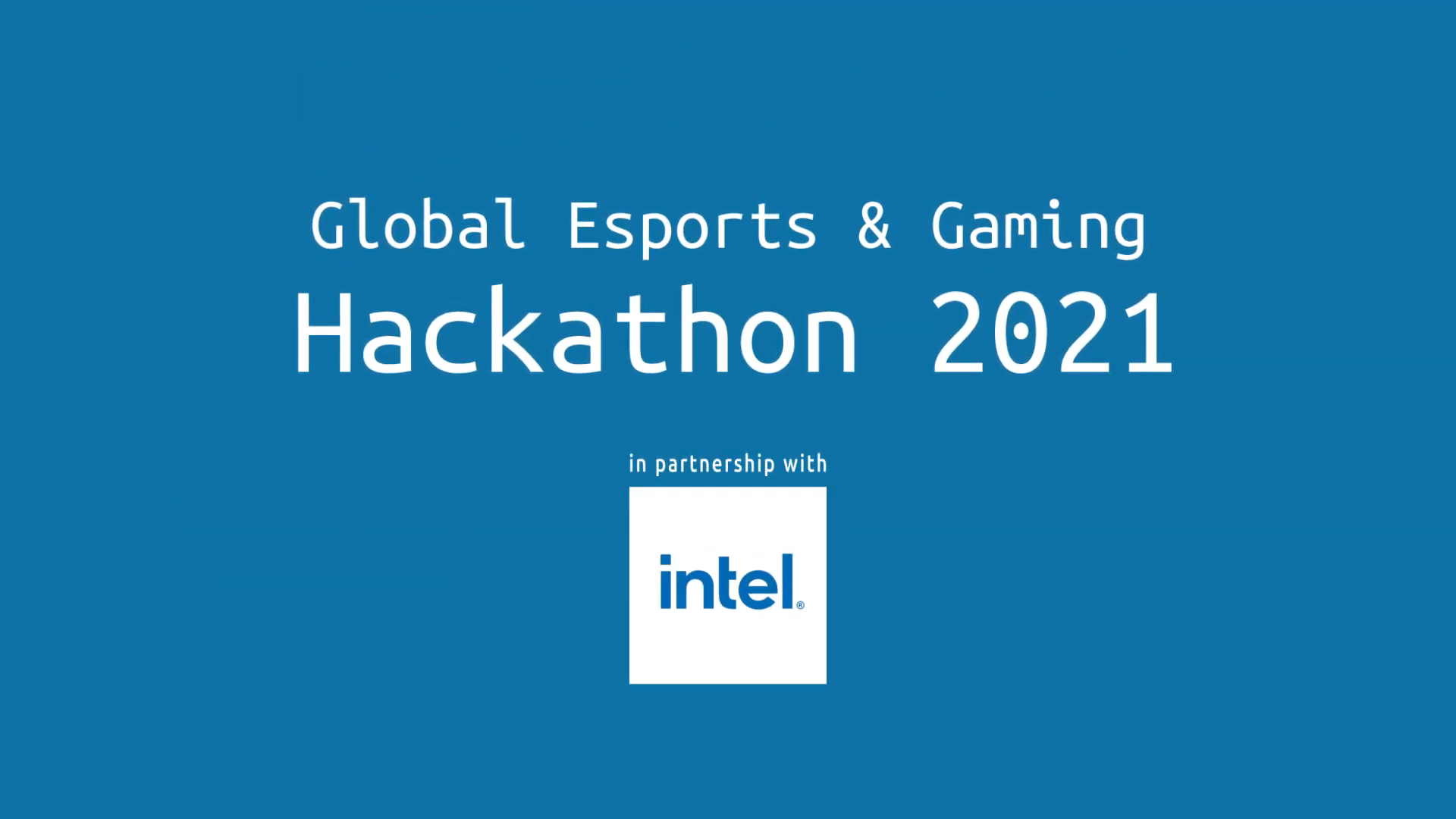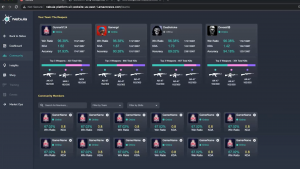Most people are familiar with the concept of esports by now as the industry has ascended into mainstream recognition in recent years.
However, there are plenty of new, niche areas within the industry that have yet to be explored — one of which is programming competitions, or hackathons.

RELATED: EPIC.LAN renews Intel partnership for 2022
Esports has been pulled in unforeseen directions and will likely continue to do so in the future as technology keeps evolving. Programming entering mainstream culture could create a huge opening in the gaming and esports market and even go a step further and become its own form of entertainment.
Moreover, events such as codefests or hackathons create opportunities for bright minds and ideas to shine and offer solutions to current pain points in the esports and gaming sector.
To better understand the ways that the gaming and esports industry could further evolve with the help of technology, Esports Insider spoke with Darren Baker, Director & Global Business Alliance Executive of Intel Alliance at Sogeti.
Launching an esports-focused hackathon
Sogeti, part of Capgemini, a global leader in consulting, technology services and digital transformation, organised the Global Esports and Gaming Hackathon, urging participants to turn their ideas into a concept with genuine value-making potential.
The company, which celebrates its 20 year anniversary in 2022, has sponsored teams, including Oplon in France, S2V in Spain and the Dutch Esports Academy, and is now turning its sights to esports at a global level.
Baker explained: “Ultimately, we’d like to convince esports-focused companies, game studios, and gamers more broadly that we can help them. To do so, we wanted to bring a technological presence into the community that enables our talent to showcase their skillsets, hence the Hackathon.”
RELATED: Heat Map: Hottest esports business trends of 2021
Through its Hackathon, Sogeti also aimed to uncover some potential development areas within esports and gaming. Some examples include leveraging AI, cloud and data insights for player performance and player experience.
Sogeti teamed up with Intel to create the latest Hackathon as the companies have already been partners for some time, focusing on transforming the digital workplace environment.
Baker added: “Given Intel’s presence in esports as arguably its main supporter, it was a natural fit. When we started talking to Intel about it, they offered to help raise our esports awareness and to collaborate with us.”
Moreover, as part of the event, all participants were offered Intel’s Gaming Systems training to help them understand the technology behind gaming and esports. Through the training, participants gained additional knowledge that later helped them face each of the Hackathon’s challenges.
Creating esports solutions
The Hackathon presented participants with three challenges to choose from that correspond to potential problem statements or use cases within esports and gaming.
The first challenge concentrated on performance and asked participants to develop their projects around the use of technology to improve player performance at any level of play.
The second challenge highlighted ways to build better communities and participants were called to present solutions on the matter and ways to increase positive connections and experiences.
The third challenge that participants could choose was about creating a tech solution that could apply to any current game studio. This theme’s projects focused on creating ways game studios can continue to evolve their commercial propositions and continue capitalising on their offerings.
The winners of the Hackathon, Team Nebula from the USA, chose the ‘Player & Performance’ challenge to showcase ‘Nebula’, its esports and gaming platform designed to provide focused, high impact training for players with a data-centric approach.

RELATED: iBUYPOWER partners with Mythic League and Intel for CS:GO Invitational
Coming in second place, Dutch Team Voice chose the ‘Building Better Communities’ theme and created an API that connects streaming platforms (like Twitch) and game development software (like Unity). Its goal was to allow developers to easily implement mechanics that will offer viewers the chance to influence the game itself, for example by allowing viewers to vote to alter gameplay.
Choosing the same challenge, Team Buddy Esports from the USA, which came in third place, conceptualised a platform for children with special needs to participate in esports. As a progressive web application, its app enables those with special needs to participate in competitive video gaming by matching them with online buddies.
How can tech push esports further?
Data and Analytics
Currently, the tech industry provides a plethora of services to support the esports and gaming sector. One example is through data and analytics, ranging from providing insights to the betting sector to using data to help esports players improve their performance.
Baker explained: “Team Nebula are trying to accomplish exactly that: utilise data that a game provides to provide actionable feedback to teams and players to help them improve specific skills in a targeted way.”

RELATED: CBCS announces Casas Bahia and Intel as sponsors
Asked what could be done to take data and analytics within esports a step further, Baker said Sogeti believes that AI is the future.
“The last couple of generations of Intel’s cloud and high-performance processors contain additional AI processing capabilities, and we have spent the past year training people on how better to take advantage of that technology,” Baker said.
Additionally, Intel provides analytics toolkits that snap into development tools to enable more efficient data processing.
“Our AI and analytics experts are becoming more proficient in developing code to take advantage of this, and are looking at how data patterns emerge to improve efficiency,” added Baker.
Cloud services
The cloud has been used by esports clients, especially in large-scale esports event production like live tournaments in arenas, where production teams have the opportunity to create and manage their content online. However, the industry as a whole hasn’t made a definitive shift to the cloud yet, despite its inherently digital nature.
Baker said: “One of the key benefits of working in the cloud is that development and analytics, when pushed into the cloud, enables diverse teams around the world to work on the same project, helping to scale projects more quickly. In general, it still remains somewhat of an untapped area for esports so far.”
The same applies to gaming as well, as it seems that the industry is moving towards an on-demand participation format (such as Netflix) that could likely create a gap in the future for people to be able to access content even more quickly and easily. This new format will be further highlighted by the potential shift away from downloads and into game streaming in the cloud.
Sogeti in 2022
Technologies within esports are always evolving and that is unlikely to ever change, given the tech-focused nature of gaming.
Sogeti offers esports-relevant applications, such as its expertise in gaming-related development areas and familiarity with associated technologies. This expertise, importantly, can help companies “speed up their development cycles,” Baker explained.
When asked about its plans in 2022, Baker revealed: “We’re also starting to build a portfolio of more-specific esports solutions; for example, we’ve been working on game analytics projects with one of our sponsored teams, S2V, to help aid their performance.”
[primis_video widget=”5183″]
RELATED: Intel extends partnership with NSE
Fabien Senlanne, CTO of Sogeti France, also recently outlined some of his predictions and talked about a ‘game in a game’.
The internet, he explained in a blog post, is moving into a new era as the metaverse offers digital interactions, from socialising to working and even gaming. “I predict a lot of metaverse propositions for gaming in fantasy worlds with immersive experiences. This will accelerate the development of metaverse-based games in the coming year,” Senlanne wrote.
With hints at further involvement in the esports and gaming industry in the near future, Sogeti is certainly keeping all of its options open for 2022.
[maxbutton id=”11″ ]
